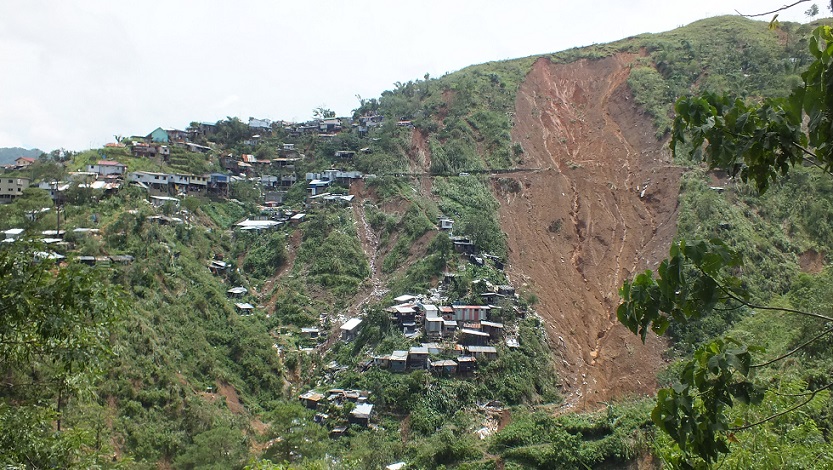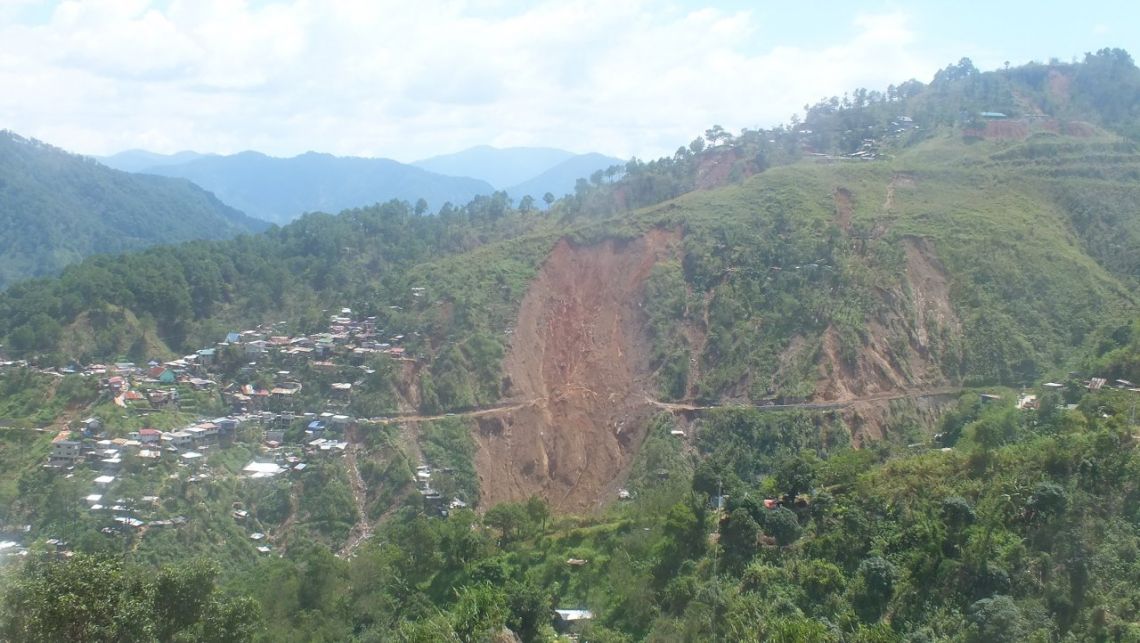Unregulated small-scale miners are appealing to the government to help legalize their status so they can continue operating under the state’s supervision and not face work suspension, as what happened to the small-scale miners in the Cordillera region.
“I am asking this body to help convey to the government the desire of small-scale miners to legalize their operations to help the government and our community,” Rodrigo Belleza, President of Magkamatao Small-Scale Miners Association of Camarines Norte, said during the 5th National Artisanal & Small-Scale Gold Mining Summit in Quezon City last week.
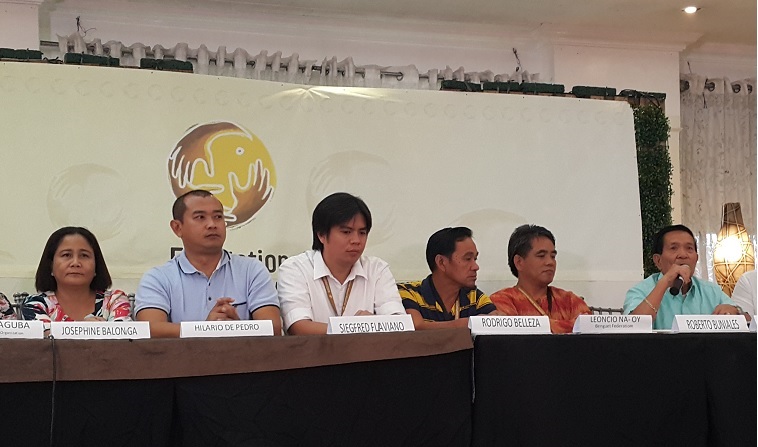
Some participants in the Artisanal and small-scale gold mining summit answer questions during the press conference. Photo by Klaire Ting
He was expressing the sentiments of illegal small-scale miners in three towns in Camarines Norte – Paracale, Panganiban, and Labo – who are said to be experiencing harassment because of their status.
Belleza’s appeal came more than a week after Department of Environment and Natural Resources (DENR) Secretary Roy Cimatu ordered a halt to the illegal small-scale mining activities in the Cordillera Administrative Region following a massive landslide that killed about 100 small-scale miners trapped in bunk houses in Itogon, Benguet at the height of typhoon Ompong.
Just days after the Itogon disaster, a landslide also buried a residential area near a quarry site in Naga city in Cebu, killing more than 70 people, prompting Cimatu to suspend quarrying operations across the Philippines pending a review and assessment of all quarry operations in the country.
There are hundreds of thousands of small miners all over the country and many of them are operating illegally without permit from the DENR’s Mines and Geosciences Bureau (MGB).
Speaking in Filipino, Belleza bewailed the stigma attached to illegal miners. “When you say illegal, it connotes bad practice but the small miners are the ones who are earning for others, for the family and for the government. Despite that, we are looked upon negatively.”
He said mine workers in his province look up to the set-up in South Cotabato, where small miners operate within the ‘Minahang Bayan’ (MB) or People’s Small-Scale Mining Area.
Minahang Bayan
A ‘minahang bayan’ is a specific area in a province declared and designated by the MGB for small-scale mining activity that is regulated by local authorities.
“Small-scale mining should be in the Minahang Bayan,” said MGB Engr. Esteban Martin. “A small-scale mining contract makes the mining legal,” he said during his presentation at the summit held at the Sulu Riviera Hotel, adding that the MGB allows gold, silver, and chromite as metallic mineral outputs for small-scale miners.
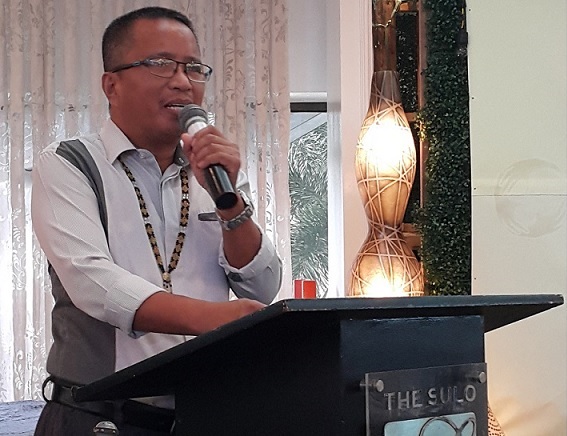
MGB Engr. Esteban Martin delivers speech on DENR efforts for concerns regarding artisanal and small-scale mining. Photo by Klaire Ting.
Getting the contract ready is not an easy process as the documentary and other requirements, including consent from the landowners or companies that have claims over the area being applied for, are onerous, according to the DENR.
“We admit that it is not easy to get an MB,” Martin said. “What is happening now is that we are only now declaring the establishment of more MBs to formalize small-scale mining. That is why we are now less strict with penalties,” he explained.
“Only in 2016 did the concern of small-scale miners about not having a small-scale contract surface. There were activities ongoing, but no contract. This is illegal or informal,” he added.
“It’s easy to say if it’s illegal, it should be stopped. But stopping it won’t solve the situation because the problem will only get bigger,” Martin explained.
Sarah Aviado, project manager of BAN Toxics Development Programme, agreed with Martin’s position, adding that work stoppage will only create more problems.
“During the coalition’s meeting, we talked about how stopping is not the solution,” she said. “It will only give birth to more problems. We need legalization, monitoring, and unity.We need to have legal cooperation for the government to monitor SSMs.”
Regulate, legalize
During the summit, Vivencio P. Ocite, Jr., chief executive officer of VPO Mining in Agusan del Sur, backed calls for the legalization of small-scale mining operations, saying they boost local employment and economic activity. He also pushed for gold rush areas to be part of ‘minahang bayan’.
He proposed an extension of the tenure of the regulated small-scale miners from the existing two years, which he said, was too short and may result in miners going back to their unregulated and dangerous operations.
Ocite raised the need for a new set of rules for medium-scale mining activities, as existing regulations are no longer applicable to small-scale mines that have leveled up their operations.
MGB’s Martin explained that the DENR has two approaches towards small-scale mining: regulation and control.
In the Cordillera, where Cimatu ordered a stop to small-scale mining, workers are seeking a reconsideration of the closure order.
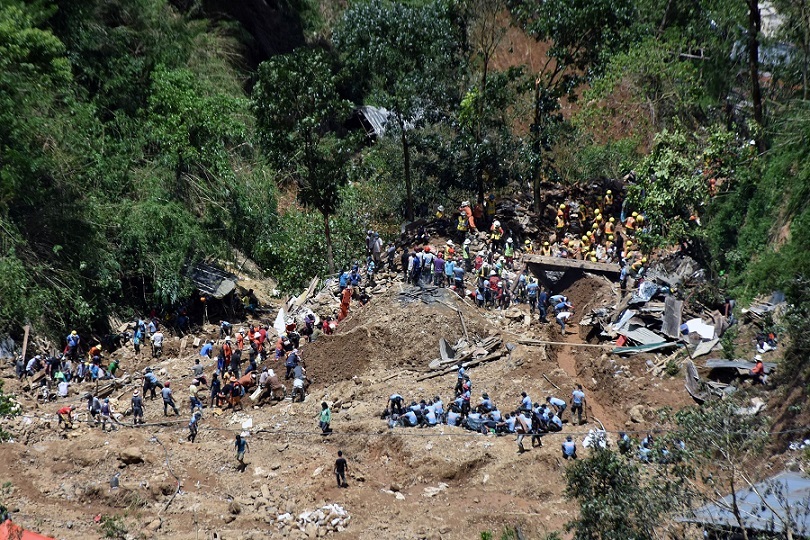
Rescue operations in Itogon after the deadly September landslide. Photo by Redjie Melvic Cawis Philippine
Information Agency – Cordillera
The Benguet Federation of Small-Scale Miners, in a letter to the DENR secretary, asked that government regulate, instead of ban, small-scale mining, saying the livelihood is customary to the Cordillera.
The DENR has been fighting an uphill battle against illegal small-scale mining in the northern region. According to department’s official website, Cimatu led the blasting of 18 mine tunnels at Sitio Basa in Tuba, Benguet last February as an initial step in the DENR’s bid to crack down on illegal activities in the country.
There are no ‘minahang bayan’ sites in the Cordillera so far, according to the DENR, although there are pending applications to establish such areas, one of them in Antamok, which is owned by Benguet Corp.
The abandoned mine has been the site of unregulated small-scale mining, where dozens were buried when typhoon Ompong slammed the northern Philippines on Sept. 15, causing deadly landslides.
There are over 20,000 small scale miners in the entire Benguet province, with Itogon hosting 12,000.
This story is produced by VERA Files under a project
supported by the Internews’ Earth Journalism Network, which aims to
empower journalists from developing countries to cover the environment
more effectively.
